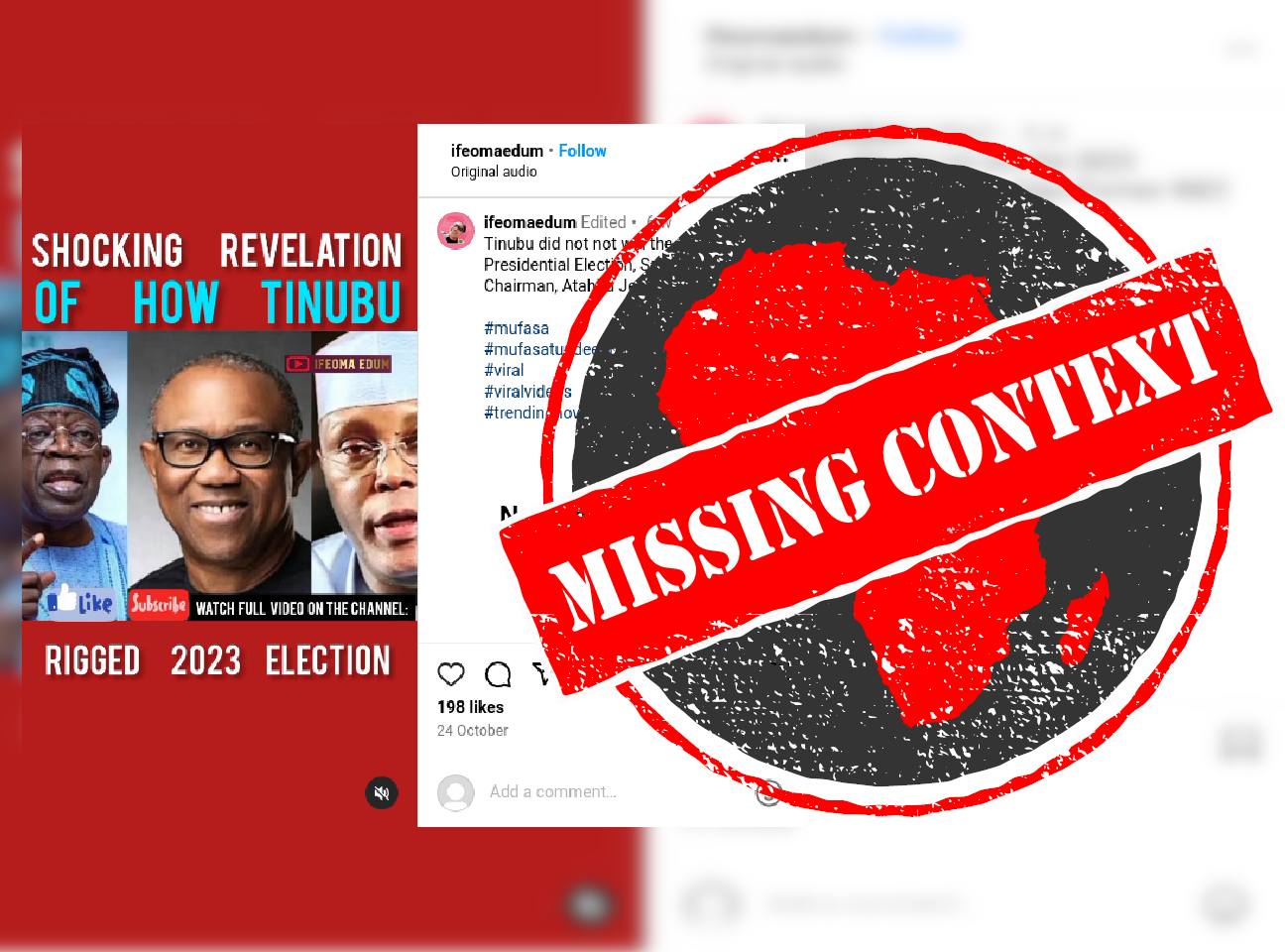IN SHORT: A video claims that Attahiru Jega, the former chair of Nigeria’s national electoral commission, said president Bola Tinubu came to power by rigging the 2023 election. But this misrepresents Jega.
A video posted on Instagram claims that the former chair of the Independent National Electoral Commission (Inec), Prof Attahiru Jega, said Nigeria’s 2023 election was rigged in favour of president Bola Tinubu.
“Tinubu did not win the 2023 Presidential Election, Says Former INEC Chairman, Atahiru Jega,” says the caption to the video.
Text in the video reads: “Shocking revelation of how Tinubu rigged 2023 election”. It begins with Jega’s photo and then shows photos of Tinubu, Atiku Abubakar and Peter Obi, the first and second runners-up in the February presidential election.
Jega is a professor of political science at the Bayero University Kano in northwestern Nigeria. He headed Inec from 2010 to 2015 and supervised the 2011 and 2015 general elections.
But did he say the commission - or anyone else - rigged the 2023 vote to make Tinubu president?

Jega’s speech misrepresented
The video, posted on 24 October, appears to have been from Jega’s speech as a guest lecturer at a retreat for senators in Ikot Ekpene, Akwa Ibom, southern Nigeria, between 19 and 21 October.
Jega was quoted in a national newspaper as saying: “We have seen, in 2023 elections, the damaging effect of how people in the corridors of power get their client/partisan nominees appointed, without being thoroughly screened, and then they are influenced to compromise the integrity of elections.”
This was widely reported on social media with the headline: “INEC Officials Rigged The 2023 Election – Prof Jega.”
Some examples can be seen here, here, here, here, here, here, here, here, here and here.
Jega’s aide clarifies
In a statement released on 23 October, Jega’s senior research assistant Princess Hamman-Obels described online reports claiming Jega said the 2023 election was rigged as inaccurate and misleading.
The attention of Prof. Attahiru Jega has been drawn to a misleading report published in a number of online newspapers quoting him to have commented that the 2023 elections were compromised.
The report making the rounds is incorrect and not an accurate reflection of the presenter’s position. Professor Jega categorically denies making this particular comment about the 2023 polls.
As would be seen in his presentation he made at the Senate Retreat held in Ikot Ipene, Akwa Ibom State, nowhere did he make such a statement that the 2023 elections were compromised. Professor Jega hopes this rebuttal will correct the incorrect and inaccurate reporting currently making the rounds.
Jega was also interviewed on popular programme Politics Today on Channels TV on 27 November. He discussed the 2023 election but he didn’t make the claim. Jega hasn’t claimed that the presidential vote was tampered with.
Republish our content for free
For publishers: what to do if your post is rated false
A fact-checker has rated your Facebook or Instagram post as “false”, “altered”, “partly false” or “missing context”. This could have serious consequences. What do you do?
Click on our guide for the steps you should follow.
Publishers guideAfrica Check teams up with Facebook
Africa Check is a partner in Meta's third-party fact-checking programme to help stop the spread of false information on social media.
The content we rate as “false” will be downgraded on Facebook and Instagram. This means fewer people will see it.
You can also help identify false information on Facebook. This guide explains how.


Add new comment